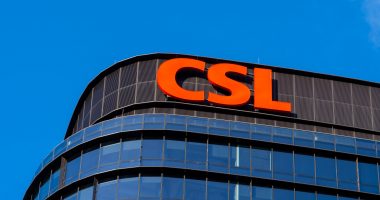Sonia Madigan:
Recce Pharmaceuticals (ASX:RCE) has raised $11 million to continue developing its late-stage drug candidate, anti-infective, R327. Why did the company raise now? RCE CEO, James Graham, is here to explain.
James Graham:
Hello, Sonia.
Sonia Madigan:
Now, importantly James, how did investors respond to the raise given it’s a tough market out there and $11 million is quite an achievement?
James Graham:
It is a tough market out there. When we look to the biotech stocks around us, the 34 per cent on average, just looking across the different VWAPs, it’s actually one of the least dilutionary capital raises of all the capital raises I’ve seen in recent times. And I expressed that from the perspective of not issuing any options commonly. And I can point to many examples though, better not name names. When you apply for one share and get one option, kind of a 50 per cent discount. Well, in ours, you apply for one share and you just get that discount to the trade without any options. So therefore it was well supported.
Fidelity Bank, by example, increased their position to 7.69 per cent or 7 per cent with around 15.2 million shares. So doing the multiple of shares times share price, many millions of dollars committed to the company. The shareholder base really stepped up, including myself, participating alongside about $103,000 I invested, and my fellow members of the board further invested about 110 ish thousand dollars as well. Really, it’s an expression of the board and executive aligned with shareholders backing this new class of infectious disease technology at an exciting stage in these clinical studies.
Sonia Madigan:
What would you say to investors who may be concerned about dilution through this raise?
James Graham:
The raise quantum and certainly discounts to price, the quantum was relatively small, and the discount to price was relatively minor. I’m the second, or I was the third largest shareholder approximately before the raise, and I think Fidelity stepped over me there. I’m as impacted as any dilution above and beyond the huge majority of shareholders. So my shareholding is way above and beyond any salary that I could ever get. I care a lot at the dilution impact and the share price, and therefore I see the impact as a really nicely weighted balance between the capital required to get ahead and the dilution rate impact it would otherwise have to have gone say higher or broader or deeper discount, et cetera. So it’s a position for success to get ahead with our clinical candidates.
Sonia Madigan:
Given all of that, what is the company’s plan to ensure that you are managing and allocating the raised capital effectively?
James Graham:
Well, we raised the capital at the completion of one set of clinical studies and opened the capital round, which has been successfully delivered to start a new set of studies. We’ve moved quickly to do that with a diabetic infection study, active in the background, the largest in Australia at this time, fast infusion a urosepsis or UTI through to the full-blown septic infection study happening, particularly in Sydney at this moment down the street from us here, as well as of course, the sweeter preclinical studies, expanding our manufacturing to the United States with Department of Defense and similar activities. Looking ahead from us and really advancing these multiple clinical candidates with near term news flow ahead.
Sonia Madigan:
So how confident are you still that there will be long-term growth for shareholders?
James Graham:
Well, look, I’m not in the game of donating money. I’ve invested another $103,000 in this capital round. I mean, fidelity invested another multiple million of dollars, and I think we recognize that they’re pretty good at picking winners, and it really gives this clinical candidate the best chance of success as it is currently, the world’s most advanced new class of antibiotic, hasn’t been a new class in over 40 years, and we’re really positioned in a space of unmet medical needs with major patient populations and the price premiums that can come from that is from an investor perspective, very compelling.
Sonia Madigan:
Now, before we go, you recently spoke at the Sepsis Alliance Summit 2023. What can you tell us about this event and the alliance itself?
James Graham:
Well, our compound really represents a sign of new hope in the fight against superbugs. Our compound is globally the most advanced new class of antibiotic in the world, and it’s also clinically the most advanced sepsis drug candidate globally at this time, to my knowledge, the only one with an FDAQIDP status to back it. So, it represents in that circumstance, new hope for sepsis and of course an opportunity of alignment with the various stakeholders, patients, clinicians, government, pharmaceutical companies, and so on. So that was a good conference.






